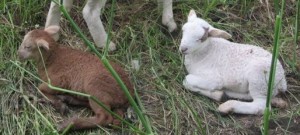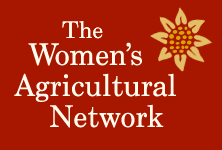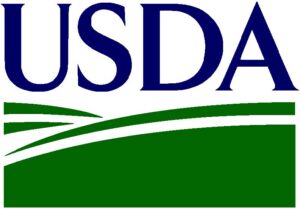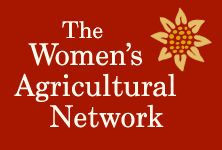
The girls of Howling Wolf Farm graze fresh pasture in May. Ewe 711 in the center of the photo is the subject of this piece.
I’m dressed in my sweatshirt and my knit hat. I have a knife in one hand and rubber gloves in the other. My husband says, “You amaze me”.
“Why?”, I ask.
“Because I don’t know many women who would do this”, he says.
“Really?” I reply. “Because I know a lot of them.”
When many women think about Thanksgiving, they are concerned about how many relatives they will host, whether the kids will be well behaved, what they will serve for dinner, and how clean the house is.
When you are a female livestock farmer, you experience all of those feelings and complications (and more). It’s a pretty tough balance at the best of times.
Last week, I had a sick ewe. She wasn’t my absolute favorite ewe, but a foundational mother of my flock. She and I have had an on-again, off-again relationship. Three years ago, she had a serious bout with mastitis and I spent four terrible days trying to keep her from dying. The vet, my mentor and I were successful and she lived to lamb again. This time the prognosis wasn’t so clear. She had increasing paralysis starting with her face and throat and progressively moving through her extremities. We still have no idea what was causing it.
At the same time, relatives from three states were descending for Thanksgiving. I had a major cleaning project to accomplish in order to get to the room we planned to serve twelve people in. There were pies and rolls and side dishes to make. As the night drew in Wednesday, I covered my ewe with a down coat and packed hay in around her body to keep her as warm as possible. I visited her several times to make sure her head was up and that she could breathe.
Thanksgiving Day was a wonderful family event. From time to time, I went out to check on her. Often a family member came with me. They love to visit our animals. Usually, I love to show them off but a sick animal feels like a sick family member. It was tough not to be preoccupied.
So, on the morning after Thanksgiving when I went out for chores and found her still body, I was more than a little grateful. Selfishly, I was grateful that she lasted through my relatives’ visit and, less selfishly, I was simply grateful that she looked so peaceful and relaxed at last. She was suffering no longer. I was relieved. We livestock farmers all struggle, I think, with where to draw the line between hoped-for-recovery and needless pain. After two solid days of intense care with no improvement, I was entering that gray area. Should I give her more time to pull through? Is it better to end this now? She chose her path and I was thankful for that, too.

711 had two lambs in 2011, George and Martha. While George is no longer with us, Martha the beautiful brown ewe will be carrying on 711’s legacy next spring.
On my way out the door Friday to collect a sample for testing at the state lab –her head in this case—my husband observed that I am unlike most women he knows. But I know many, many women farmers who balance the smelly, gross, bloody, sublime, rote, transformative, and inspirational. A woman in my neighborhood had a baby in the morning and still did her milking chores that night. A woman friend with five kids left her husband to start her own farm based on her own ideals. Cleaning closets, making pies and caring for a dying ewe? That’s all part of a day in the life of a woman farmer. And we find our little moments of gratitude wherever we can.






